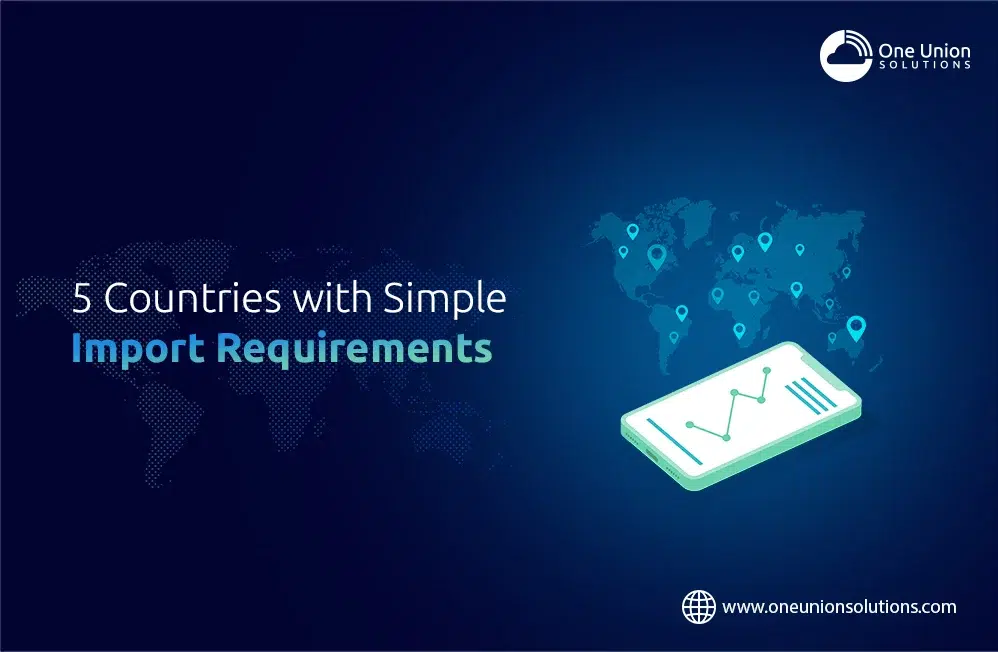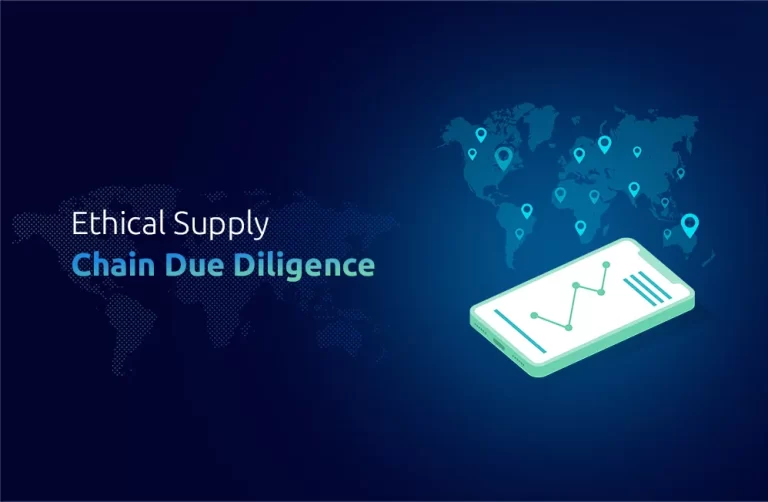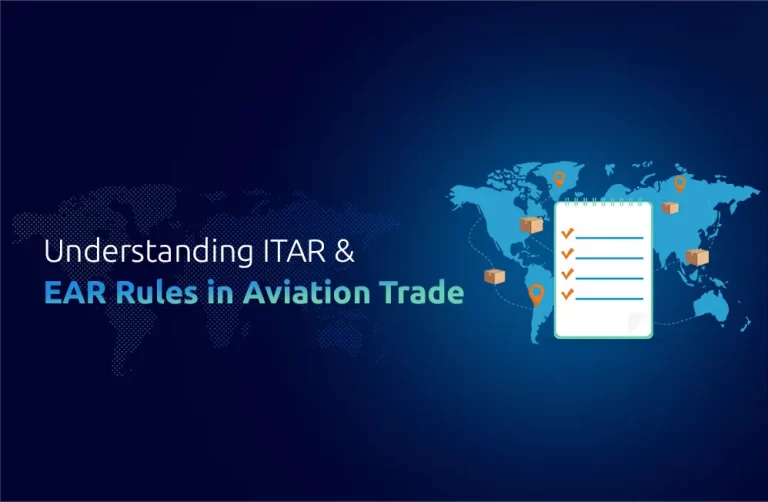International trade can be complex and time-consuming to navigate, particularly for goods. Businesses looking to go global often need help with trade barriers, rules they need to abide by, and lengthy customs clearance processes as they attempt to expand globally. However, certain countries make purchasing equipment simpler for companies, which allows them to enter those markets faster.
At One Union Solutions, our Importer of Record (IOR) services make importing simpler for our clients. From handling documentation to ensuring compliance, we make the import process straightforward. In this blog post, we list five countries with straightforward import requirements and ideal destinations for companies searching for seamless international trade.
1. Singapore: Gateway to Southeast Asia
Singapore stands out as an extremely business-friendly nation when it comes to imports. Thanks to a highly developed free market economy with simplified import procedures, this nation makes Singapore an excellent hub for global trade, especially beneficial for firms looking to break into Southeast Asian markets.
Why Singapore Is Unique for Imports:
Reduced Paperwork Burden: For imports to Singapore, only essential documents like commercial invoices, packing lists, waybill tracking, and data sheets are needed, making the process smoother overall. Singapore boasts one of the fastest customs clearance times globally, typically taking only 2-3 days for import approvals.
Singapore boasts low import duties thanks to an 8% Goods and Services Tax (GST) and reduced tariffs on many imported products, providing cost-efficient entry of equipment into the country.
Singapore provides businesses in the technology, IT, and medical equipment sectors an easy environment and infrastructure for importation due to its supportive business climate and robust trade infrastructure.
2. Japan: Modernizing Its Import-Export Procedures for High-Tech Imports
Japan is an ideal choice for businesses searching for simple import processes. Appreciating its advanced economy and infrastructure, Japan provides a well-structured import system, particularly advantageous for automotive, medical, and tech businesses.
Key Features of Japan’s Import System:
Simple Documentation: Japan requires standard documents like waybill tracking, commercial invoices, packing lists, & data sheets to speed up customs clearance processes & lower the delays, which prevents unnecessary delays while streamlining the customs clearance process. Imports into Japan typically take three to five to seven days for customs approval, making it an efficient option for businesses with short deadlines.
Clear Taxation: Japan applies a transparent 10% VAT that makes estimating costs straightforward and prevents surprises from appearing later on. Japan offers an efficient and predictable system that makes importing technology products such as computers, networking hardware, and consumer electronics much simpler for companies.
3. United States: Trade Giant
The United States is known as a trade giant on the globe. The United States imports billions of goods into its borders each day. Import requirements in America are straightforward, with an efficient customs process suited for technology, aviation, and automotive businesses.
Why the U.S. Is an Ideal Import Destination:
The United States offers businesses multiple shipping options that meet their import needs; from air freight and courier shipping options, businesses have more freedom when importing goods by their specific business goals.
– Standardized Import Requirements: Essential documents such as commercial invoices, packing lists, and data sheets must accompany most imports.
– Efficient Customs Clearance: The United States offers an efficient customs clearance process, making import approvals typically occur within 5-7 days to guarantee timely market entry.
Due to ongoing trade tensions, goods from China face an additional 25% tariff, while imports from other countries enjoy simpler processes and fewer restrictions.
4. Switzerland Is Business-Friendly and Tax Efficient
Switzerland is the economic powerhouse in Europe & one of the most open economies worldwide. It offers attractive tax conditions & low trade barriers, making it a highly desirable location for import/export businesses sourcing high-value items such as medical equipment or technology equipment.
Benefits of Importing to Switzerland:
Quick Import Approvals: Switzerland’s customs process is highly streamlined, and approval times usually take just 2 or 3 days. Switzerland boasts low VAT rates of 7.7%, significantly less than many European nations, and provides businesses that import high-tech products an effective cost-saving advantage.
– Favorable Trade Policies: Switzerland’s participation in various free trade agreements has further simplified its import process, guaranteeing smoother customs procedures. Switzerland’s strategic location and business-friendly environment make it an ideal country for companies importing technology or medical equipment.\
5. United Arab Emirates (UAE), an Emerging Business Hub
The United Arab Emirates (UAE) is expanding trading as a business hub known for its efficient import process & business-friendly climate. Sitting between Europe, Africa & Asia, the UAE serves as an entryway to these regions.
Why the UAE Is Ideal for Imports:
The UAE offers speedy customs approval, typically taking 5-7 days, making the market accessible faster to businesses. The country applies 5% VAT, making it an affordable destination for importing goods of various kinds. Flexible Shipping Solutions, much like in the United States, UAE accepts both air freight and courier deliveries to provide businesses with multiple ways of importing products. UAE’s efficient import process and convenient location make it an attractive option for companies working in the technology, automotive, and aviation industries.
Conclusion
Businesses seeking to expand globally may benefit from choosing Singapore, Japan, the US, Switzerland, and the UAE for imports, as they provide simple yet efficient processes that are ideal for entering new markets. At One Union Solutions, our Importer of Record (IOR) services help businesses navigate various countries’ import requirements effortlessly. From compliance and documentation management to logistic optimization, our IOR services ensure your equipment reaches its final destinations without issue.
Reach out to us now and see how we can streamline your import operations and open new markets efficiently.
Did You Know….
Singapore achieved a positive trade balance of SGD6.24B during July 2024, with exports tallying SGD46.4B and imports reaching SGD40.2.
FAQ’s
- Which countries offer simplified import requirements for technology products?
Answer: Countries like Singapore, Japan, the US, Switzerland, and the UAE offer efficient import processes for technology products.
- Which country offers the best conditions and processes for import/export business?
Ans: Singapore and UAE are widely considered top choices due to their conducive business environments and simplified import processes.
- How long do customs take in the U.S.?
Ans: In the U.S., customs clearance generally takes five to seven days, depending on the goods imported to the country.
- What is Switzerland’s VAT Rate on Imported Goods?
Ans: Switzerland applies a 7.7% VAT rate on imported goods, making it one of the most inferior VAT rates in Europe.
- Which documents are necessary when importing to Japan?
Ans: Japan requires standard documents like commercial invoices, packing lists, waybills, & datasheets for technology imports.










